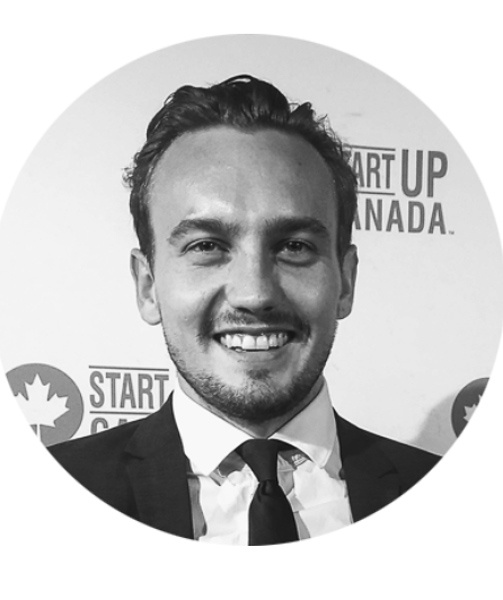Aquaculture Ambassador: Steven Bourne
“I’m an environmentalist and everything I do, is in line with mitigating climate change. With that, aquaculture paired with ‘closed-loop’ systems (aquaponics) is extremely sustainable and will be a major factor in feeding a world,” Steven Bourne, Council for Emerging Leaders in Aquaculture.
By Samantha McLeod
SeaWestNews
Aquaculture in Canada today generates $5.16 billion in economic activity and employs over 25,000 people. As one of the fastest growing food sectors in the world, the industry in Canada has a younger-than-average domestic workforce with two-thirds of all employees under the age of 35. Our new series, Aquaculture Ambassador, is about 14 Canadians who have come together to showcase the growing presence of young people in the sustainable future of farming the oceans. In this segment, we talk to Steven Bourne, Co-founder, Ripple Farms Inc., & Director of Rafterra Global.
Tell us a little bit about yourself?
As a co-founder of Ripple Farms Inc., and director of Rafterra Global I take pride in being an entrepreneur and an environmentalist, I am continuously seeking to make a positive impact in our communities and beyond. I’m also the co‐Founder to the Toronto-born Social Enterprise, which is dedicated to tackling food insecurity through its farming operations with Aquaponics. We were recently awarded Social Enterprise of the Year Award via Startup Canada, so that was rewarding in itself.
What drew you to aquaculture?
I’m an environmentalist and everything I do, from my daily choices to my business activities, is in line with mitigating climate change. With that, aquaculture paired with ‘closed-loop’ systems, aquaponics, is extremely sustainable and will be a major factor in feeding a world that is overpopulated and strained on natural resources.
I met my business partner, Brandon Hebor, three years ago around a table at the Centre for Social Innovation, which as it happens is our current shared office space now. We were initially brought together by a mutual friend looking to start a consulting firm in the Cap and Trade Industry, Brandon showed me a picture of a pilot project he had built over the previous four years, it was a small-scale aquaponics system. I, at the time already had a business proposal I had developed a year prior. I slapped this proposal on the table at the beginning of our next meeting and that turned out to be day one of our journey to the present, and that is what Ripple Farms is today.
What’s your average day in aquaculture like?
Well I’m more on the business side of things, so my day is filled with meetings, financial models, and business development, but it allows me to meet people that are just as passionate about feeding the world. Our internal mission statement is “How many can we feed?” – any way we can accomplish that mission is dictating our everyday actions and interactions with like-minded people and businesses. The rest of my team, on the other hand, has more of an exciting day-to-day, which consists of growing food, feeding fish, and initiating global research studies.
How do you plan to change the current narrative about aquaculture, in particular salmon farming in Canada, from conflict to conversations about sustainability?
The way I see it, there’s no question about it, aquaculture is a necessary industry to feed our growing global population with a high value protein that is sustainably produced, more so than cattle, poultry, pork, etc. That being said, we are still in our infancy of Good Manufacturing Processes (GMP’s) and there is a lot of work to do so that we can apply new innovations to ensure quality and consistency of this industry for years to come.
There is still a huge divide between the advocates of wild vs. farmed fish – this is a massive barrier to growth and public perception. We need to be working together as a collective to showcase the long-term benefits of the two silos as one. We need to talk about how these two ecosystems are physically interacting in the wild and finding solutions of how they can benefit symbiotically.
One key way for us to change the narrative is through traceability. I call it an ‘open door’ policy. When you dive deeper into the life of a farmer in the aquaculture industry you’ll see much more than what the media might want to showcase to drive views and click-through. There are some producers that aren’t producing sustainably or ethically, which gives the whole industry a bad name. On the other hand, there are so many more that are putting in the time and money into creating a system to feed the future. These are coming in the form of global collaborations, innovation, research and development, attracting top talent, and so much more.
Moving forward, I strongly believe the focus is not to win public perception, but rather go to the source, the farmers, and help them succeed with opportunities of innovation and technology that not only increase supply to compete with global markets, but also develop a lasting framework of traceability.
What is the single biggest project you are working on now?
I can’t disclose too much at this time, but we have some substantial projects in the works that will not only feed a lot of people with Aquaponics (fish and vegetables), but create direct & indirect jobs, research and development for new technologies/applications, and economic benefit to local communities – stay tuned!
RELATED LINKS:
Meet the future of Canada’s sustainable aquaculture industry
